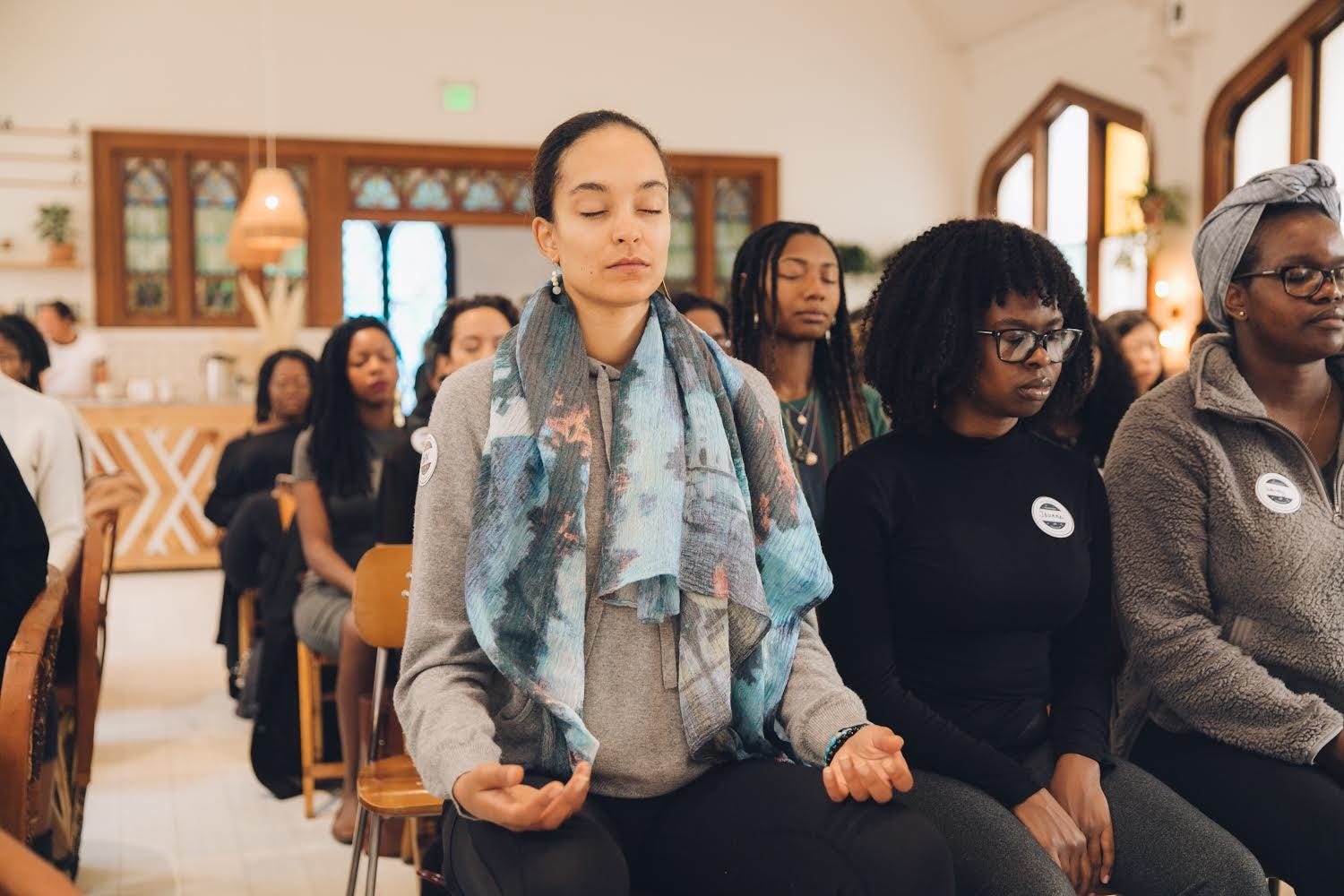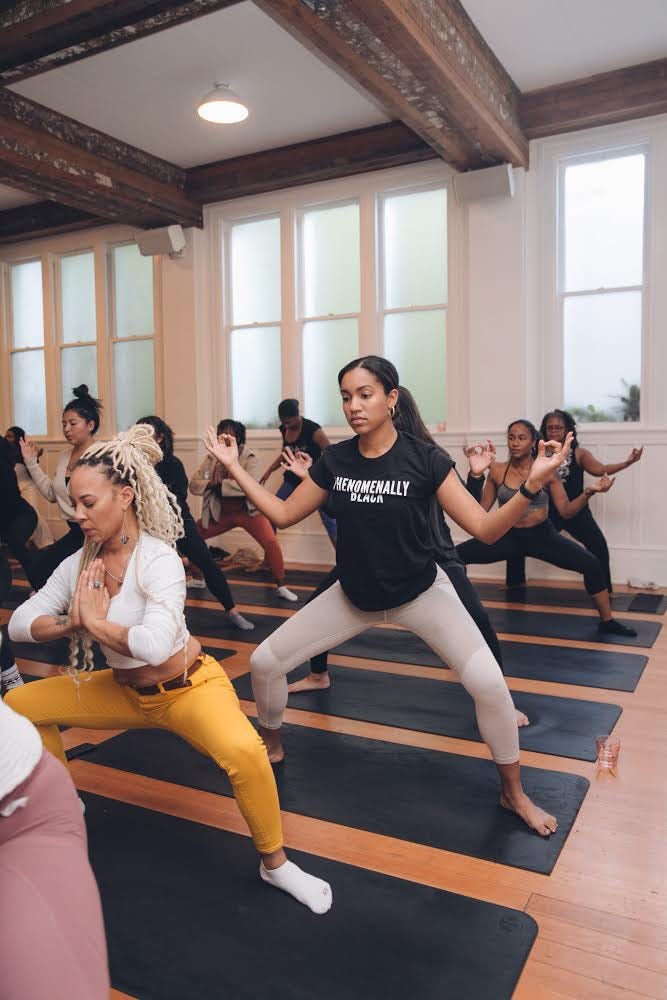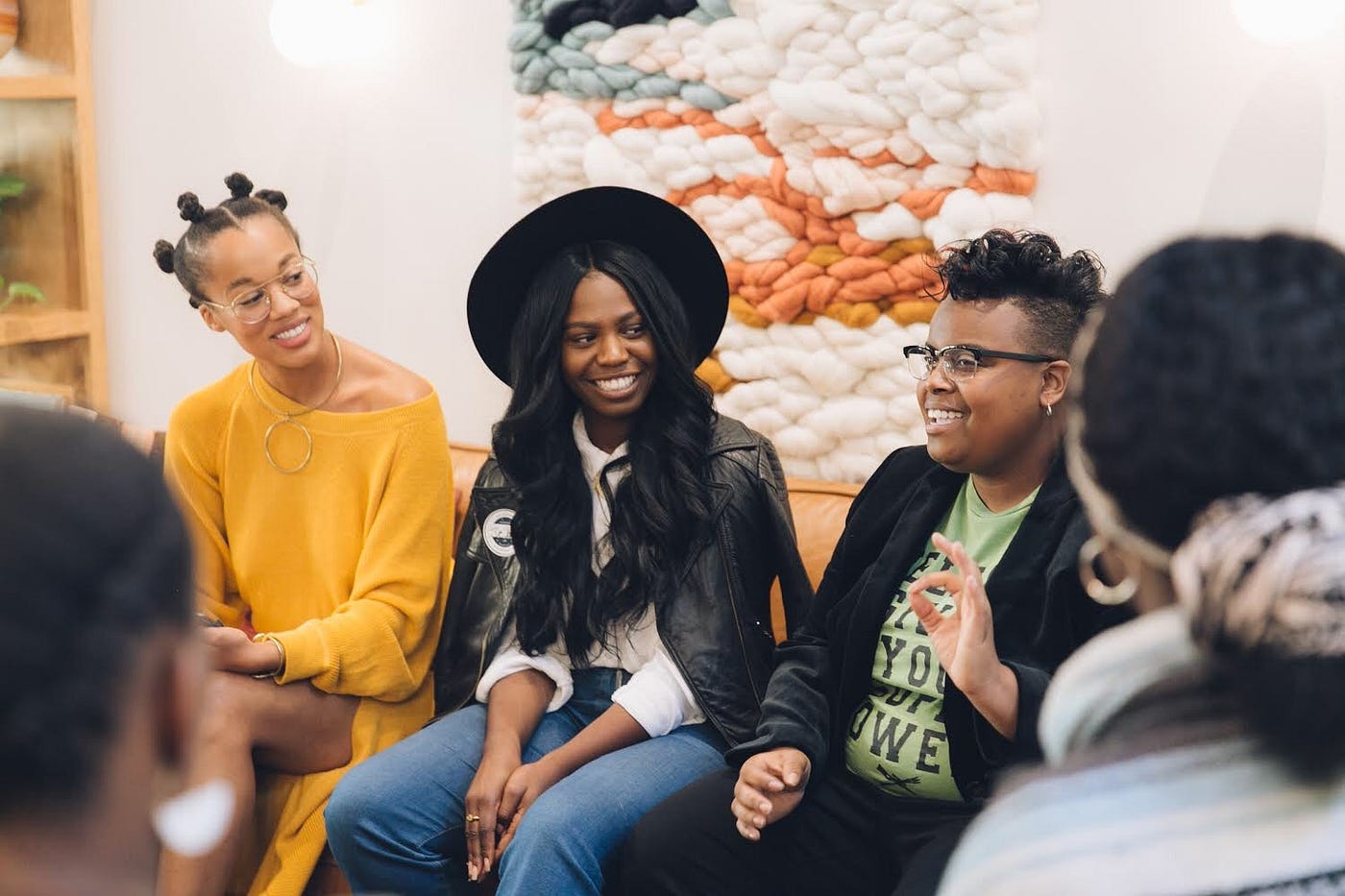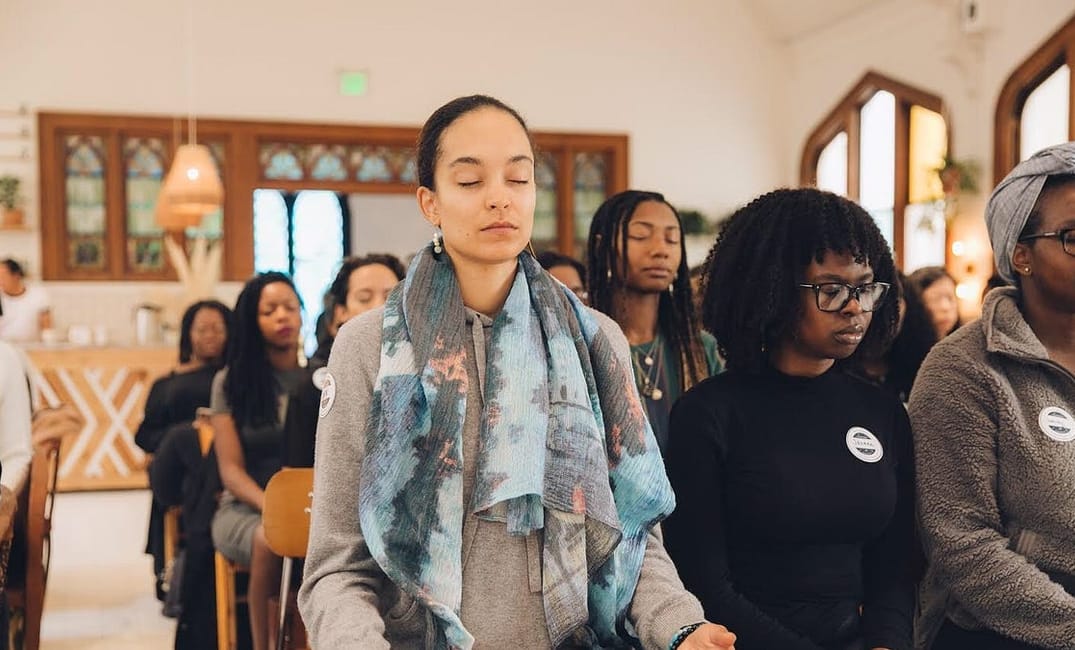
I had set foot in The Assembly before. The women’s well-being clubhouse in the Mission is an oasis both inside and out — from the plant-filled outdoor showers to the garden workspace to the in-house cafe to the massive workout room offering the latest trending fitness classes. But in the Bay, boutique fitness studios and some co-working spaces appear more often than not to be exclusively white.
My most recent visit was different because I was there for The Assembly’s Annual Wellness Day, a daylong event for self-identified black women and women of color. Being in a diverse, inclusive environment was refreshing for Corrinn Cobb, an attendee who recently moved to the Bay Area from Chicago. She told me, “Wellness is a necessity. But accessibility is an issue, not just in terms of price, but also finding people who look like me.”
Seventeen speakers, wellness practitioners, and moderators filled up the day — seven of whom were from the WoC wellness collective Black Girl In Om, The Assembly’s partner for the event. Women of color were integral to nearly every element of the event — from the delicious baked goods made by WoC-owned A Girl Named Pinky to a wholesome lunch served by Afro-vegan Healing Kitchen.
The day was also a special collaboration for Black Girl In Om to celebrate its five-year anniversary. “I wanted to bring together more women of color to The Assembly. In San Francisco, it’s really hard to find women of color. The event was something I envisioned myself attending,” said Amber Quiñones, creative programming manager at The Assembly, who also teaches a class called “thick.” at the clubhouse, which was created with the empowerment of all body shapes and sizes in mind.
The morning began with an opening meditation with neuroscientist Nkechi Njaka, which evoked tears around the room. As women shared their feelings and asked each other personal questions, a theme clearly emerged: there is a lack of community wellness spaces dedicated to and for women of color in the Bay Area.

Although yoga originated in Northern India over 5,000 years ago, the sacred practice has been molded, modified, and appropriated in various ways.
“Yoga has largely been a white space. It’s more of a white lifestyle — but we women of color deserve that too,” said Charise Guerzo, a student at Westmont College in Santa Barbara who is interning in the Bay Area this semester.
After the meditation, a “Reclaiming Our Time and Spaces” panel discussion began, an ode to congresswoman Maxine Waters, known for her infamous “reclaiming my time” one-liner. The panel included family activist Mia Birdsong (whose TED Talk on poverty has been viewed over one million times) and Adesina Cash, founder and owner of Hot Spot Yoga in Oakland. The duo illuminated the room with their thoughts on breaking down the walls of white-dominated wellness.
“This is what keeps us well — no one is going to do it for us,” Birdsong said. “We need to practice the freedom we want to create. It’s hard for us black women to do that.”
While many fitness studios might not see the cost of classes as an exclusionary practice, the expense is also a barrier that has gotten worse with the boom of boutique fitness. “Many boutique fitness studios [in the Bay Area] have whitewashed fitness. I’ve had uncomfortable situations. You pay a lot of money to be there, and they make you feel unwelcome,” said Joanna Salem, who identifies as a body-positive blogger. While rising rents and operation costs are understandable for raising class prices, some studios have realized that financial aid is required to create a more diverse clientele.
The Assembly offered financial scholarships to attend this Annual Wellness Day, which was ticketed at $75. According to Quiñones, dozens of requests for assistance poured in. And there was no question that the event, with overwhelming enthusiasm from attendees throughout the day, was successful at creating a space for women who needed it, despite their level of income.
Jeanette Corona is an Oakland-based mother and, with her own mom, a new small business owner of a catering company. She told me that she has sacrificed exercise due to motherhood, work, and her new business, which ultimately comes at the expense of her own well-being. She used to belong to a gym but paused her membership because of financial constraints. Her gym, Truve Fitness, often checks in with her to see if she needs financial assistance with her membership—which, she says, is meaningful and encourages her to rejoin.
“I think fitness studios are figuring out they can’t just be a place to work out — they have to be build community,” said Salem.
It makes a difference when fitness studios, gyms, and wellness clubs view their customers as valuable members of their community. Providing customers with financial assistance, childcare, or work/trade options opens the door even more.
The Assembly’s Annual Wellness Day coincided with the annual AfroTech Conference, which, Quiñones said, was somewhat intentional, as she wanted a space to be available for WoC who don’t directly work in tech or wanted an alternate community gathering.

The event brought a total of 154 women together, which included 106 attendees. And its significance wasn’t just for the women inside The Assembly or around the Bay Area — The Assembly’s Instagram saw 51,000 Story impressions during the event.
“This feeling and sentiment that we’ve internalized as women of color — that we’re not deserving of these things — it affects us so deeply,” Quiñones said. “You deserve exactly whatever it is you dream of. This [day] is a healing space for women of color to talk about different aspects of their wellness or well-being. I want people to feel like they belong as a person of color in the Bay Area.”
As places like The Assembly make room for non-members, other spaces should reconsider their offerings and aspire to be more accessible and inclusive — for longer than one day.
Days after the event, Quiñones told me that her emotions of joy still lingered. Creating and seeing a space that reflected her, where other women of color connected, found community and comfort, and were empowered had a lasting effect. As places like The Assembly make room for non-members, other spaces should reconsider their offerings and aspire to be more accessible and inclusive — for longer than one day.







